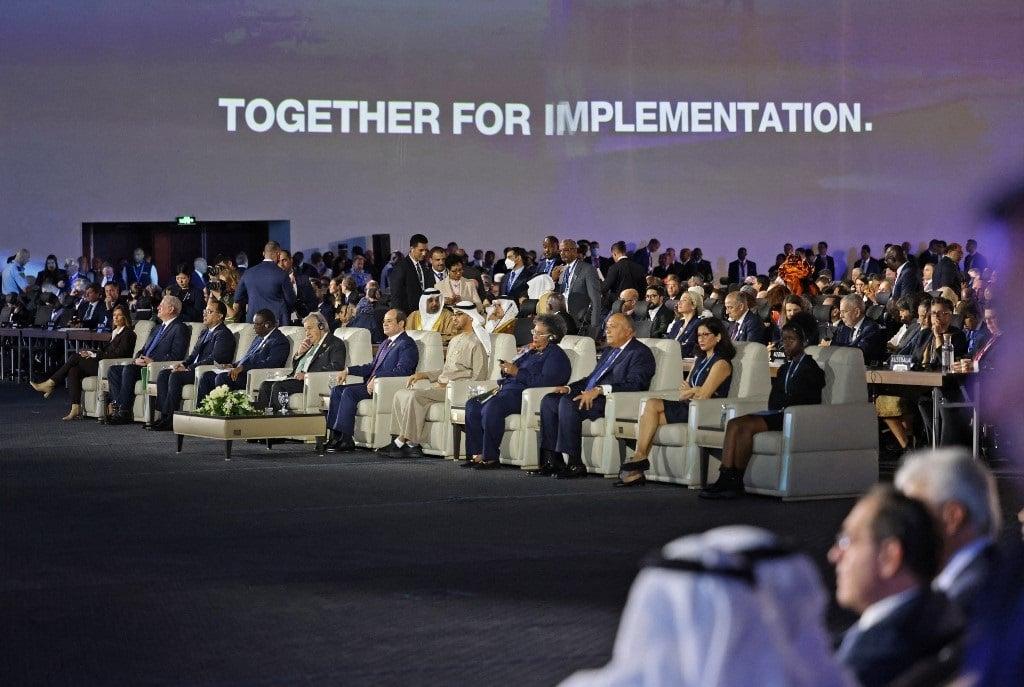Africa-Press – South-Africa. The latest big global talk shop, the United Nations Framework Convention on Climate Change (COP27), got under way in the Red Sea resort of Sharm El Sheikh, Egypt, today with African heads of state, government, civil society, and big business joining global leaders to discuss climate change.
COP27 is where African leaders intend to speak with one voice on avoiding a climate disaster without compromising the continent’s growth and poverty reduction.
Botswana President Mokgweetsi Masisi, said he would particularly be active in sessions that address food security, climate finance, water security, and the climate crisis in Africa.
“The president will also deliver a national statement that will, among others, inform on Botswana’s national climate change policy and steps being taken to address climate change and its effects,” the Presidency said.
President Cyril Ramaphosa will also deliver a national statement.
This is significant for South Africa, as Ramaphosa will unveil the country’s Just Energy Transition Investment Plan earmarked for a $8.5 billion (about R153 billion) climate finance deal.
Zimbabwe’s Emmerson Mnangagwa, writing in the state-run Sunday Mail before his departure to COP27, said:
Mozambique’s Filipe Nyusi will be the centre of attention at the high-level panel on Loss, Damage and Disaster Risk Reduction in Africa organised by Mozambique, as African champion on disaster risk reduction, on Tuesday.
Africa’s interests in COP27
Africa’s narrative is directed by the continent’s Agenda 2063 which seeks to end poverty and hunger, achieve food security and improved nutrition, and promote sustainable agriculture.
Agenda 2063 also seeks to promote inclusive and sustainable economic growth, full and productive employment, and decent work for all. As well as making cities and human settlements inclusive, safe, resilient, and sustainable among other goals.
But Covid-19 has slowed poverty reduction on the continent. According to the Institute of Security Studies (ISS) in Pretoria, by 2030, an estimated 479 million Africans (28.1% of the population) will be living in extreme poverty.
With the Covid-19 setback, climate change can only make it worse.
Already, Africa is warmer than the global average. In the Sahel region, the temperature is rising 1.5 times faster than the global average which was 0.85°C from January to May this year.
The rate of sea level rise along African coastlines exceeds the global average, contributing to an increase in the frequency and severity of coastal flooding and erosion, as well as salinity in low-lying cities.
Therefore, climate change advocates from Africa are calling for a different approach to Africa away from the Paris Agreement, which speaks to the world’s needs. Africa needs a tailored approach.
Going into COP27, African climate change activists will be calling for a formula to reverse the continent’s marginalisation in the climate change debate.
For instance, most data used in the climate change discourse is not Afrocentric. There’s a need for more research into climate change impacts in Africa and funding should be made available for such.
There is also the just transition agenda, which aims to address the socioeconomic impact of the transition to a low-carbon economy, as well as environmental legacy issues to create new opportunities for sustainable economic development in the most affected places and communities.
African leaders have been highlighting that the continent has the lowest rate of emissions per unit of the gross domestic product (GDP). This means that there is a leaner relationship between GDP and emissions.
Therefore, the challenge Africa now faces is how to increase its GDP without increasing greenhouse emissions and that needs to be addressed at COP27.
For Africa to industrialise, the continent needs energy. The continent, according to World Bank statistics, has 50% of its people without access to modern energy solutions.
In rural Africa, for example, firewood is the main source of energy. The World Bank also notes that 263 million people in the region will be left without electricity in 10 years.
Therefore, the continent has to quadruple electricity production for it to achieve its development goals. That would mean Africa using all energy sources available to it, such as coal, but that would increase Africa’s emission rate.
If the world moves away from fossil fuels, that would negatively affect Africa. That is why Africa’s representatives at COP27 will argue that the continent needs more time to transition to green energy.
For More News And Analysis About South-Africa Follow Africa-Press






